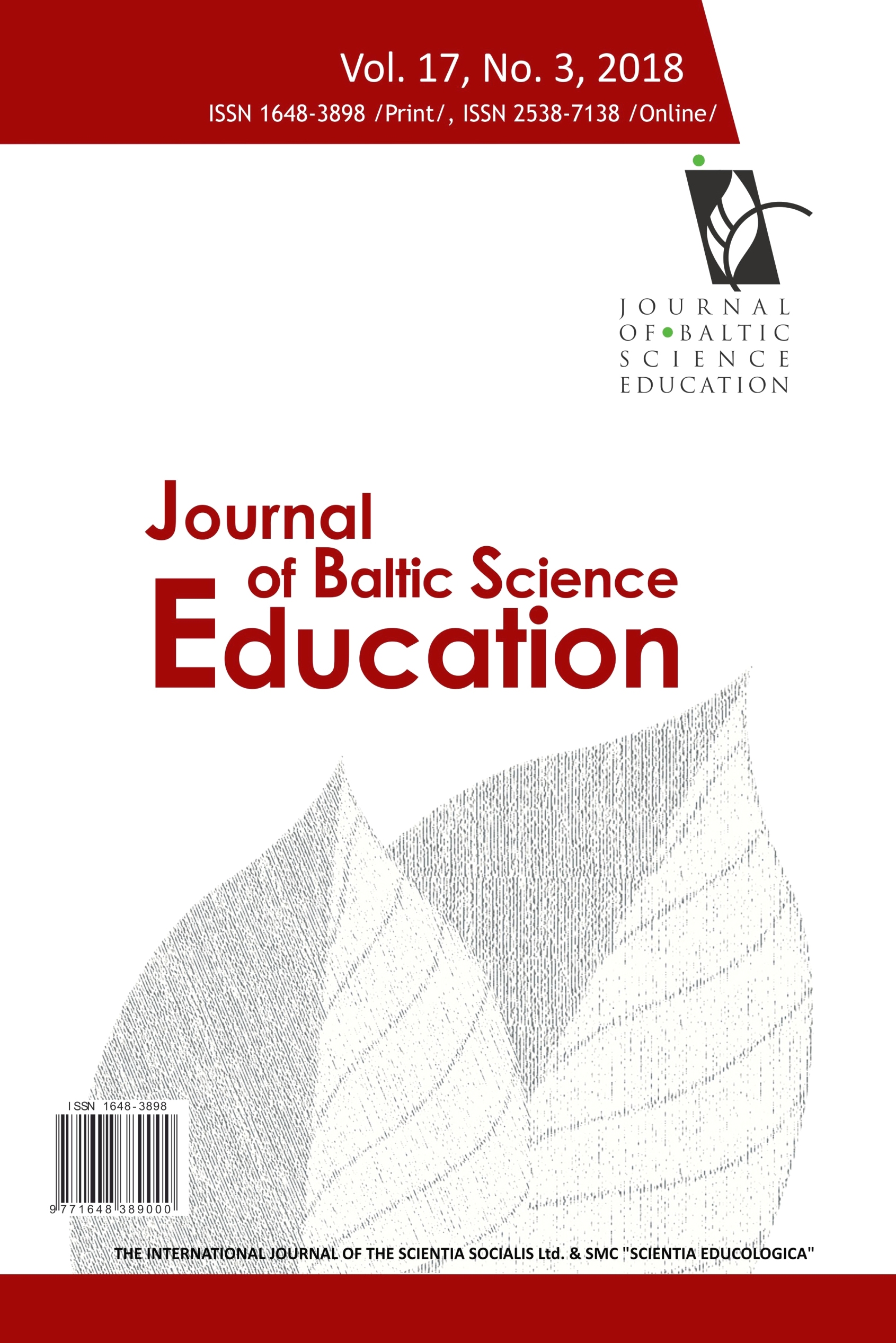PRACTICALITY AND EFFECTIVENESS OF THE IBMR TEACHING MODEL TO IMPROVE PHYSICS PROBLEM SOLVING SKILLS
PRACTICALITY AND EFFECTIVENESS OF THE IBMR TEACHING MODEL TO IMPROVE PHYSICS PROBLEM SOLVING SKILLS
Author(s): Joko Siswanto, Endang Susantini, Budi JatmikoSubject(s): Social Sciences, Education, School education
Published by: Scientia Socialis, UAB
Keywords: IBMR teaching model; model practicality; model effectiveness; physics problem solving skills; bachelor programs’ students;
Summary/Abstract: The design of a teaching model must qualify to be applicable or practical and effective, therefore the research aimed to analyze the practicality and effectiveness of the IBMR (Investigation-Based Multiple Representation) teaching model in improving physics problems solving skills of bachelor programs’ students. The research was conducted by applying the one-group pre-test and post-test pre-experimental design to 186 students of study program of physics education, mathematics education, and mechanical engineering. The practicality of the model is assessed using an observation sheet and the effectiveness is determined based on pre-test and post-test physics problem solving skills. The collected data were analyzed using the calculation of average scores of the feasibility of each phase of the IBMR, t-test, and n-gain. The results show that each phase of the IBMR teaching model can be implemented by a lecturer with good and reliable categories, and relevant student activities, so that the IBMR teaching model is practicality qualified. It is also effective shown by: there are increasing score of physics problem solving skills at = 5%, average n-gain with moderate categorized and not different or consistent for each pair of groups, and good-categorized students’ responses on each component of teaching.
Journal: Journal of Baltic Science Education
- Issue Year: 17/2018
- Issue No: 3
- Page Range: 381-394
- Page Count: 14
- Language: English

